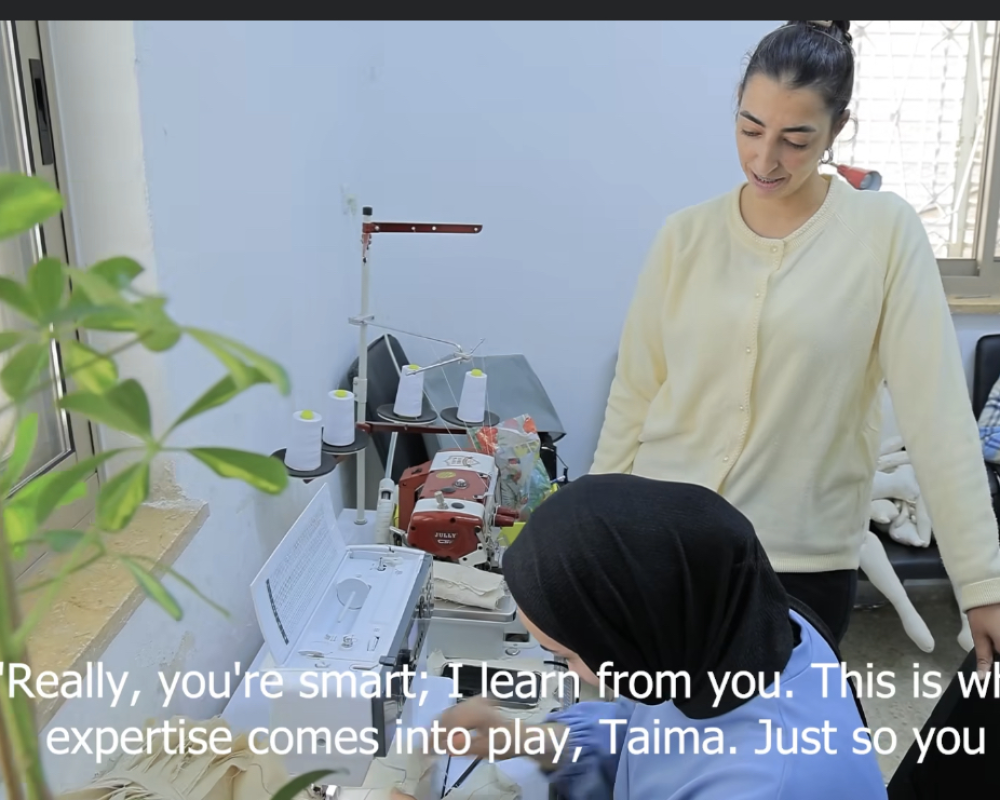
Bethlehem / PNN /
In 2019, a group of young people in the Bethlehem area saw the need for effective and sustainable change in Palestinian society, especially in the southern West Bank. With this vision, the Innovation Palestine Foundation was born, working tirelessly since then to lay the foundations for empowerment and promote positive change, especially among women and youth.
Ibtikar is a fundamental pillar in the foundation's programs, seeking to empower children, youth, and women in their communities to become capable of creating a positive impact in their lives and society. In addition, Innovation's initiatives focus on quality education and promoting entrepreneurship, key elements that youth consider crucial for achieving change.
Suleima Al-Jarashi, the director of the Palestinian Innovation Foundation, says in her interview with the Palestinian News Network (PNN) as part of the "Close" project, an regional media initiative implemented by the French Agency for Media Development (CFI) and supported by the French Development Agency (AFD) in four Arab countries: Palestine, Lebanon, Jordan, and Iraq.
Al-Jarashi states that the Innovation Foundation also deals with advocacy issues, seeking to spread knowledge and awareness regularly. The foundation aims to achieve effective and sustainable change by continuing and intensifying its activities for the groups it works with, making these groups and every individual in society an agent of change.
Al-Jarashi explains that among the important programs offered by Innovation is the "SHE LIDES" program, targeting refugee women in camps in the southern West Bank. The foundation aims to motivate and empower this group to be change-makers in their lives and in the wider community.
In response to their experience with Innovation, Sufian Zahida, one of the beneficiaries, describes it as a beautiful and distinctive experience that involves gaining and exchanging expertise. He emphasizes that their approach involves innovation in things they lack and are working to develop, as well as improving existing aspects.
Zahida adds that Innovation has touched on the reality of entrepreneurship and various fields, focusing on the youth's future in the job market and life. According to him, their experiences with the foundation involve innovating in areas they lack and developing them. He also mentions that there are things already present in them, but they seek to enhance them.
Shaymaa Jumaa, another beneficiary of Innovation's programs for women and youth, shares her experience. She notes that she is involved in various volunteer activities with Innovation, emphasizing the beneficial aspect of her involvement in the entrepreneurial side. She mentions that youth, girls, and women benefit from their experience with Innovation by learning how to read the future, seeking solutions to problems, and starting projects.
Returning to Al-Jarashi's interview, she mentions that Innovation faces challenges, including funding. The foundation seeks to secure sufficient funding to meet the needs of all target groups. The second challenge is related to the difficult political conditions in Palestinian society, imposing additional challenges on freedom of movement and access to beneficiaries.
Al-Jarashi concludes by stating that Innovation's dedication to facing these challenges contributes to achieving sustainable change in Palestinian society.